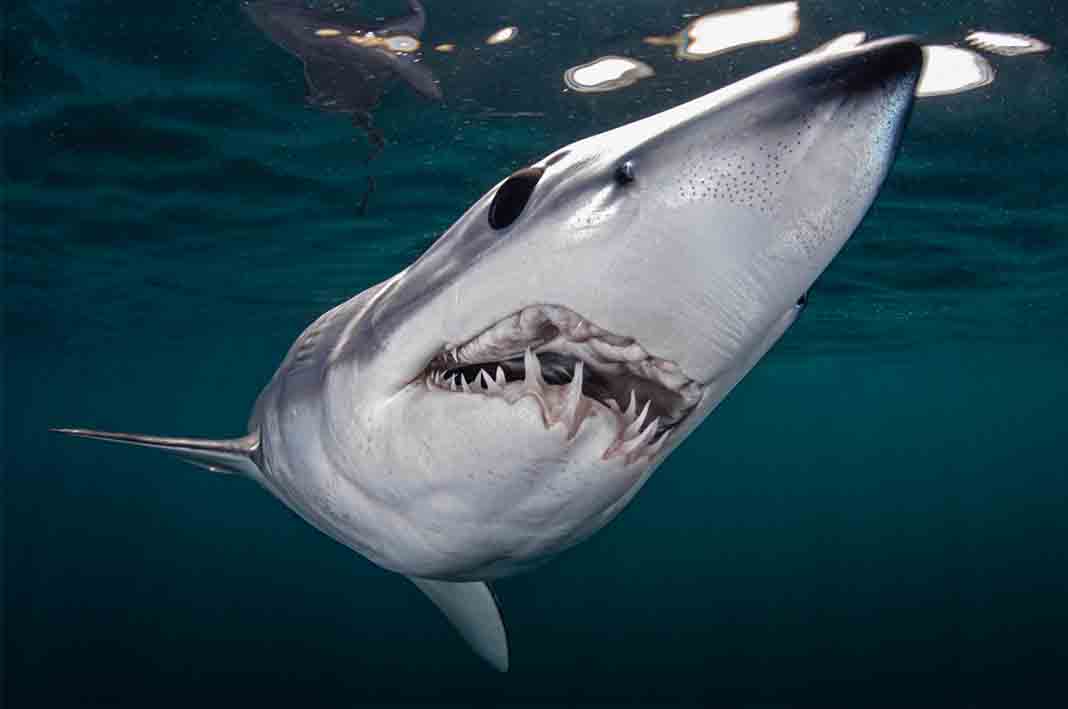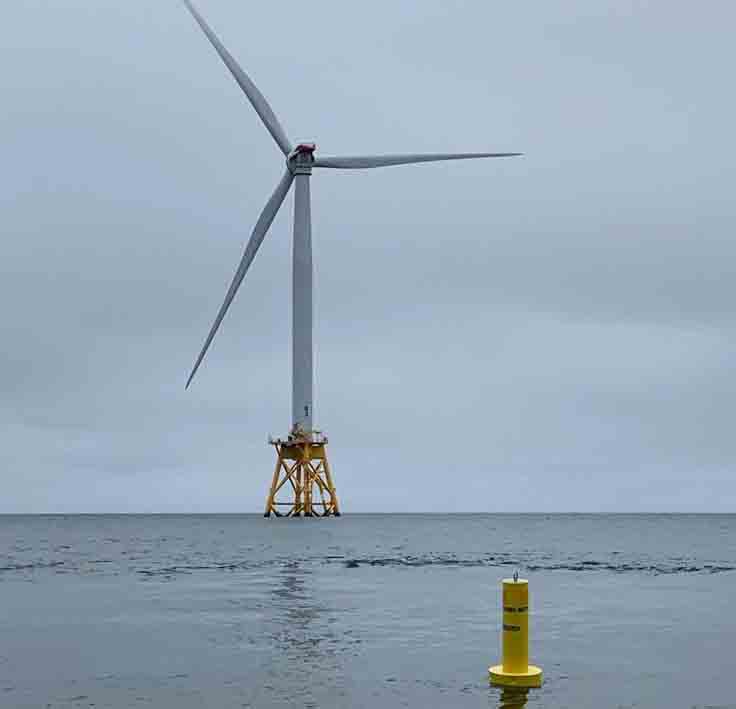
Swimming in shark-infested waters may not be on everyone’s summer bucket list, but for Atlantic Shark Institute Executive Director Joe Romeiro, it’s pure joy.
That’s because sharks aren’t monsters, they’re misunderstood, and they are the ones at risk. According to the Atlantic Shark Institute, between 70 and 100 million sharks are reportedly killed annually worldwide.
“We are seeing these animals disappear and we felt like we had to do something about it,” Romeiro said.
It’s nearly impossible to sum up the passion that Romeiro breathes into each sentence when describing his love for shark research and conservancy. The explanation is in his commitment to morphing a creative passion for film and photography into a caring mission that supports the animals he so often featured in his art.
“We’re people from Rhode Island just like everybody else, but we got involved with this stuff, we fell in love with it, we made our careers from it and our roots are here with the sharks that exist here,” Romeiro said. “Now we’re trying to give something back to them.”
Videography: Joe Romeiro Editing: Kettlebottom Productions
Atlantic Shark Institute is a Rhode Island based nonprofit, tax-exempt charitable organization that funds research on shortfin mako, blue, porbeagle, common thresher, great white, sand tiger, hammerhead and other species of sharks. Romeiro and Chairman Jon F. Dodd, along with their science partners, have put their hearts and souls into educating the public about sharks while giving back to the animals that have helped them acquire personal and professional goals.
Their mission is to conserve and protect shark species that have become vulnerable, endangered or critically endangered due to unsustainable harvests as a result of exploitation and death.
“There’s so little known about these sharks and what’s going on with them that their plight is kind of overlooked,” Romeiro said. “So as part of sharks encompassing a huge link with the ocean, we can play our small part with it.”
Coastal New England is booming with shark activity (31 species to be exact) and yet hardly anybody talks about it. Don’t worry – that’s not meant to be a scare tactic. It’s more of an invitation.
“This place is super special to the Atlantic because this is where a major amount of growth happens during the summertime and causes all of this sort of life to explode here,” Romeiro explained.
Jaws influenced beachgoers might not care to distinguish between any distant fin that sends an urgent message to high tail it out of the water. But Romeiro has spent twelve years getting up close and personal with the misconceived, beautiful beasts – he swims with them and interacts with them often. So much so, the expert can spot individual shark faces the same way an everyday Joe can differentiate between his own Labrador retriever and the neighbors down the street.
Meanwhile, Romeiro also runs an ecotouring business operation that educates clients on shark diving, filming and photography. Though Rhode Island Shark Diving isn’t directly connected to the Institute, the experience Romeiro has gained through his diving trips continues to inspire a greater good.
“We found we could fill a better void with the Institute,” Romeiro said.

The award-winning cinematographer’s work has been showcased on a multitude of cable networks and outlets, and after spending so much time interacting with these sharks, he has an impeccable understanding of how they operate.
Unfortunately, he also has a front-row seat to witnessing the exploitation and subsequent demise of some of the most charismatic and interesting shark species, including the shortfin mako and the blue, two sharks on Romeiro’s and the Institute’s radar to help.
“When we first started diving with these sharks, most people wouldn’t even dive with them,” Romeiro said. “We have dived with the largest makos on the planet, we have dived with multiple ones at a time and we have dived with them at night.”
Swimming with makos at night was groundbreaking stuff, not to mention even finding a mako who made it to adulthood. Makos are endangered while blue sharks are near threatened, and the Institute is working to help sustain future generations before it’s too late.
“There are no mako or blue sharks in any aquarium or any zoo, being held captive in any environment, anywhere in the world,” Romeiro said. “The only way to see a living one is to go out into the wild.”
The mako is the fastest shark in the world and can leap thirty feet out of the water. Nobody has been able to house them or keep them in captivity.
“They look gnarly, they look super dangerous, but they are not as dangerous as you would think,” Romeiro explained. “Seeing one alive is something that we can provide for people to learn more about the research, then help fund things that may benefit them in the long run.”
Atlantic Shark Institute is currently collaborating with scientists, researchers and students on a variety of shark research projects, including studies on the thresher, porbeagle, white, mako and blue sharks. Funding for this research requires help.
The Atlantic Shark Institute is a 501 (c)(3) non-profit organization, and donors can deduct contributions made under IRC Section 170. To make a donation and a difference in the lives of these sharks, check out the Atlantic Shark Institute website or send a check made out to the Atlantic Shark Institute at Atlantic Shark Institute, Box 333, Wakefield, RI 02880.


